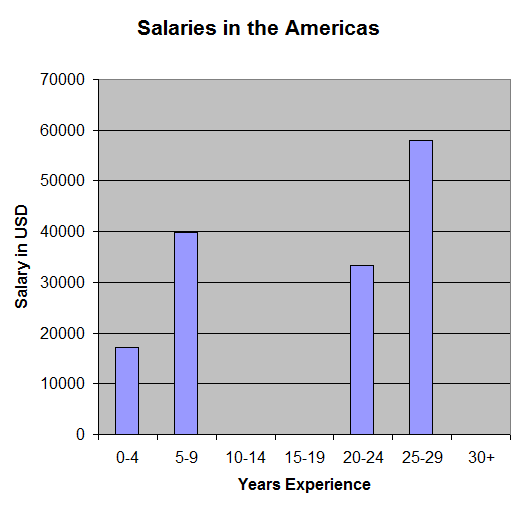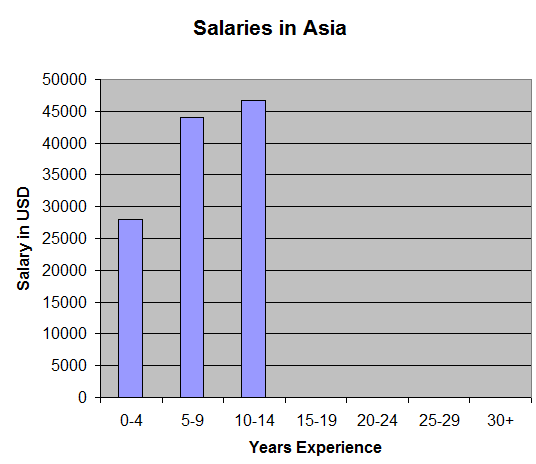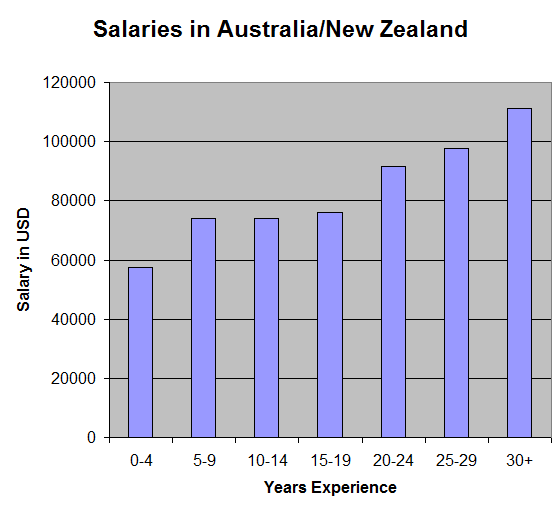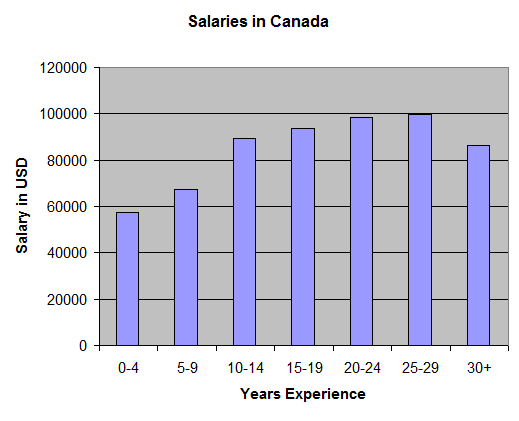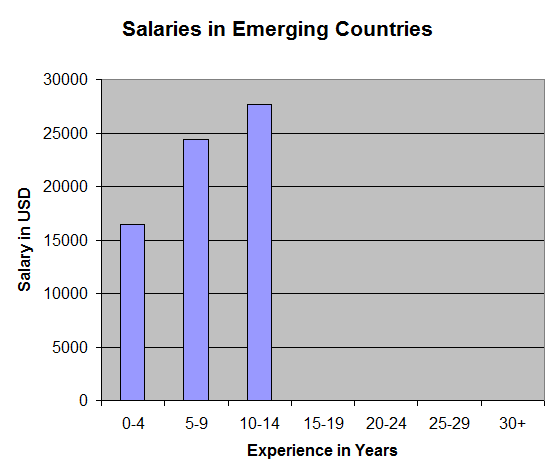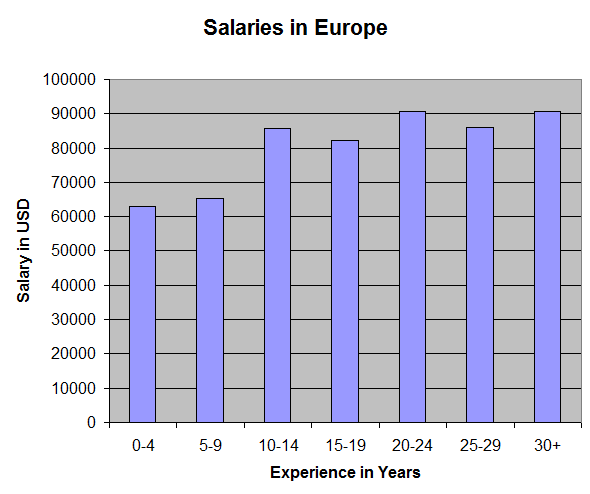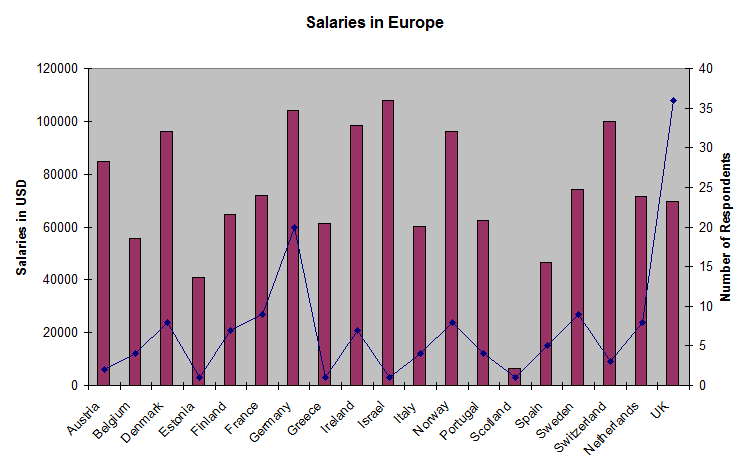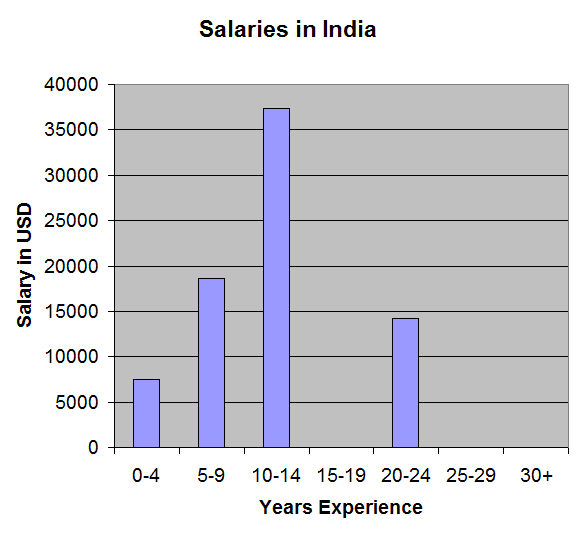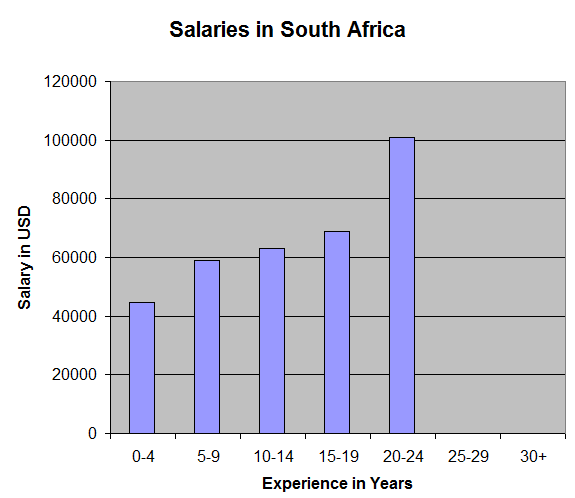
2009 Salary Survey of Embedded Developers
The latest data for 2018 is here.
I sent the readers of The Embedded Muse a request to participate in a salary survey. 1038 people filled out the form. Of those 983 passed sanity filters and were the basis for this report.
This is hardly a scientific survey; no tests were performed to ensure the accuracy of the data. But the data is interesting and suggestive.
To try and get some insight I divided the world into several camps. By "Americas" I mean North and South America except the USA and Canada. "Emerging" refers to ex-Soviet states and the like. Apologies to all for being so western-centric in making such arbitrary divisions, but there's too much data to manage without doing some grouping.
Respondents are mostly from the USA, though sizeable numbers are from other regions:
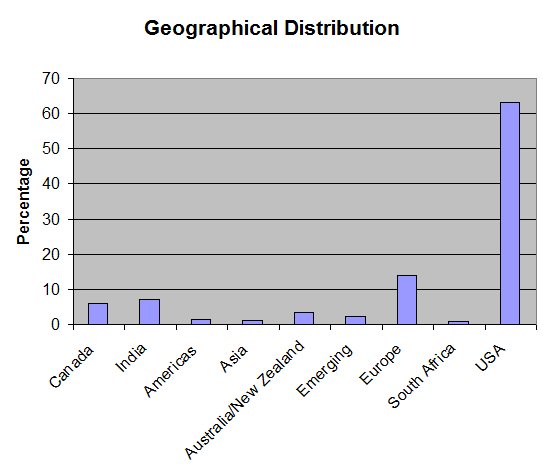
We're getting old. In our last 2006 survey the biggest bin was in the range 25-29. Now that has advanced a few years. In 2006 only 5% were over 50; now that has jumped to about 20%. One wonders if this is because so few engineers are graduating from colleges now, at least in the States.
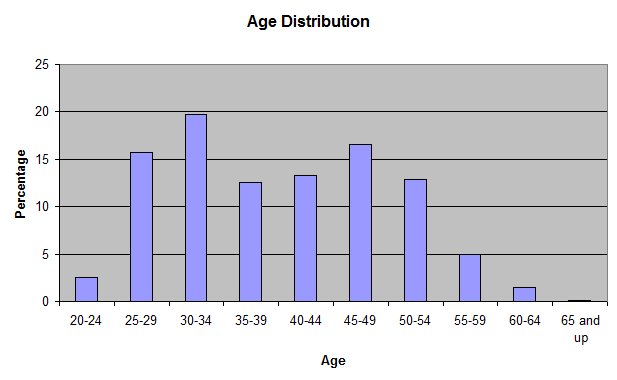
In my travels I've noticed that engineers in US and other "western" countries seem to be older than those in places like India and Asia. We in the United States are graying compared to the rest of the world. Eastern countries have by far a younger group of engineers.
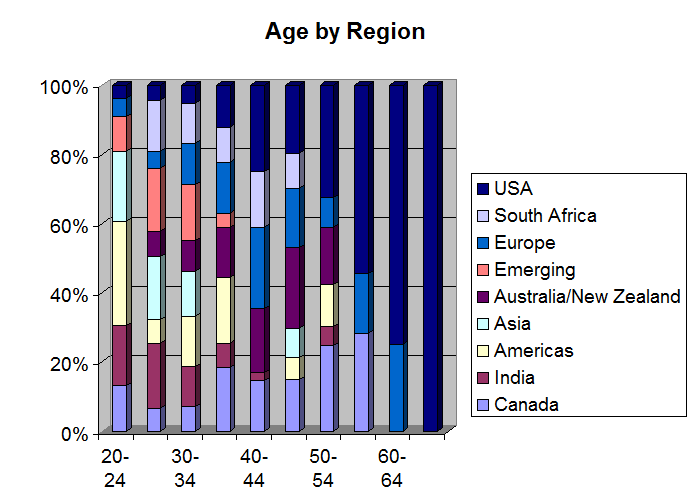
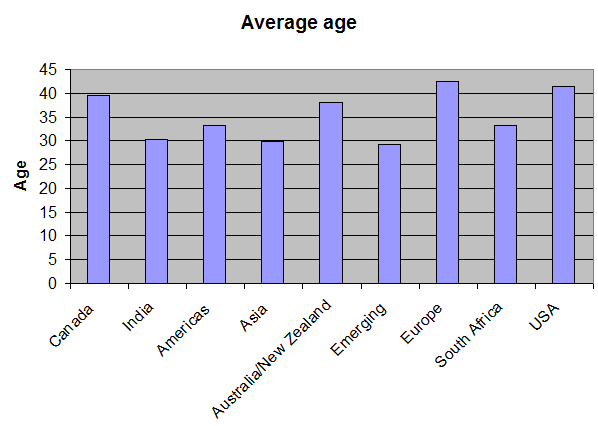
Experience
Not surprisingly, experience levels tracked ages closely, suggesting relatively few developers enter the field later in their careers. The average developer has 15.6 years of experience, up from 13.4 three years ago. The developing world's engineers are younger than their counterparts in the West, and subsequently have less experience.
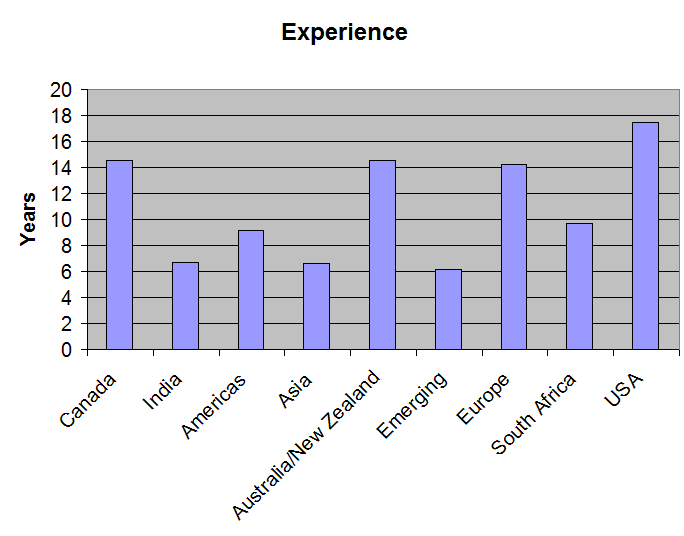
Salary
Unsurprisingly, salaries vary widely around the world. The following graphs show experience in years versus salary in US dollars for a number of regions. I left out the unemployed. Remember that "The Americas" does not include the US or Canada.
